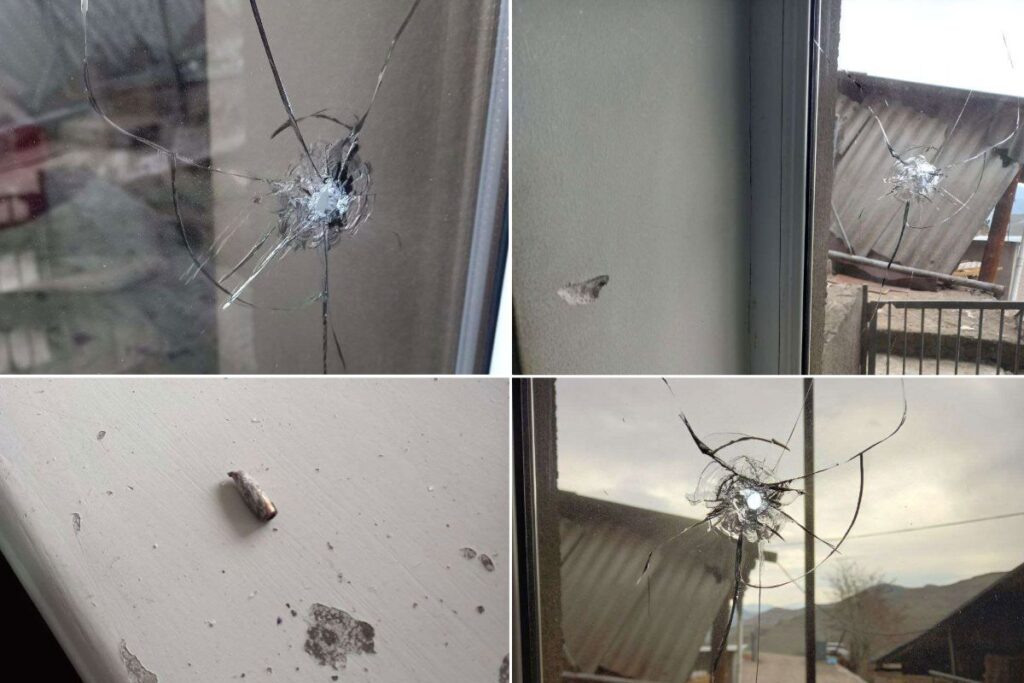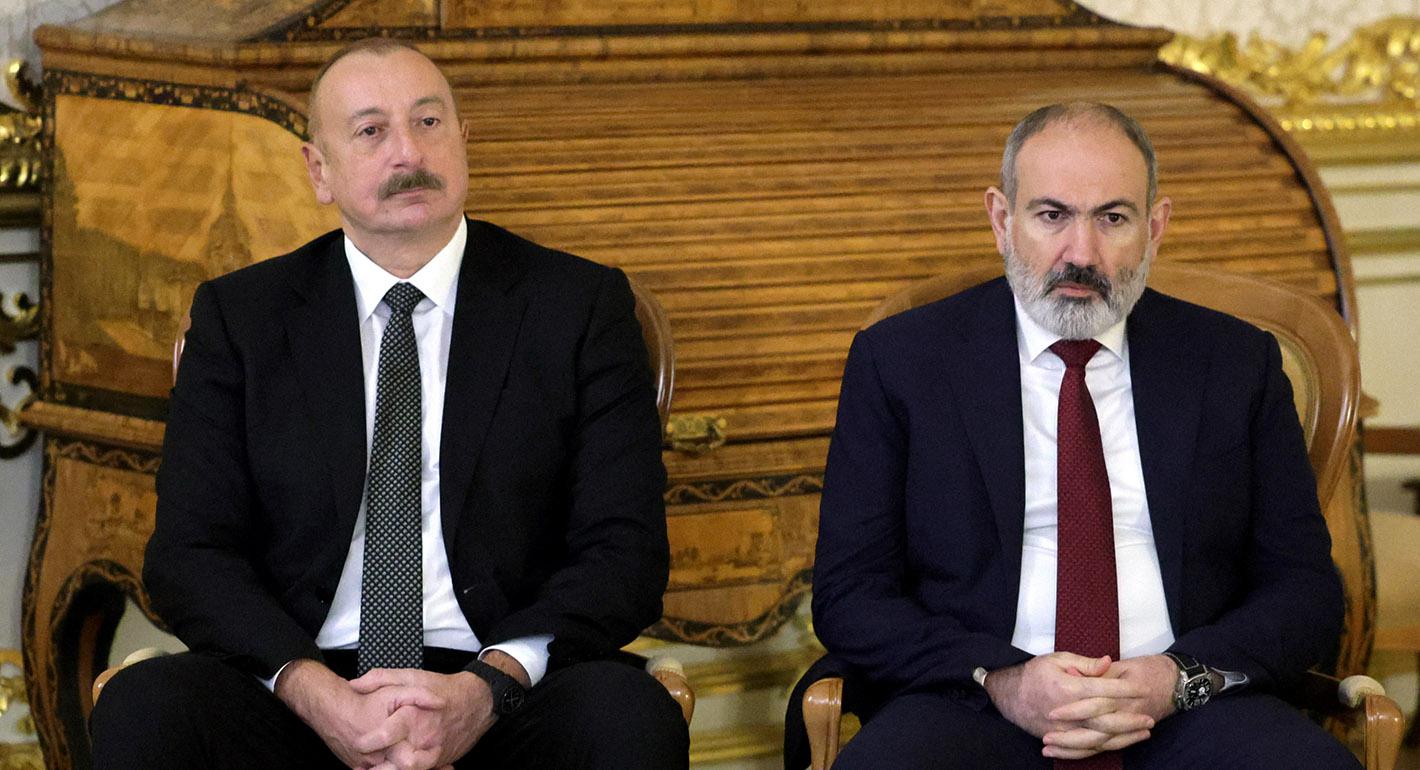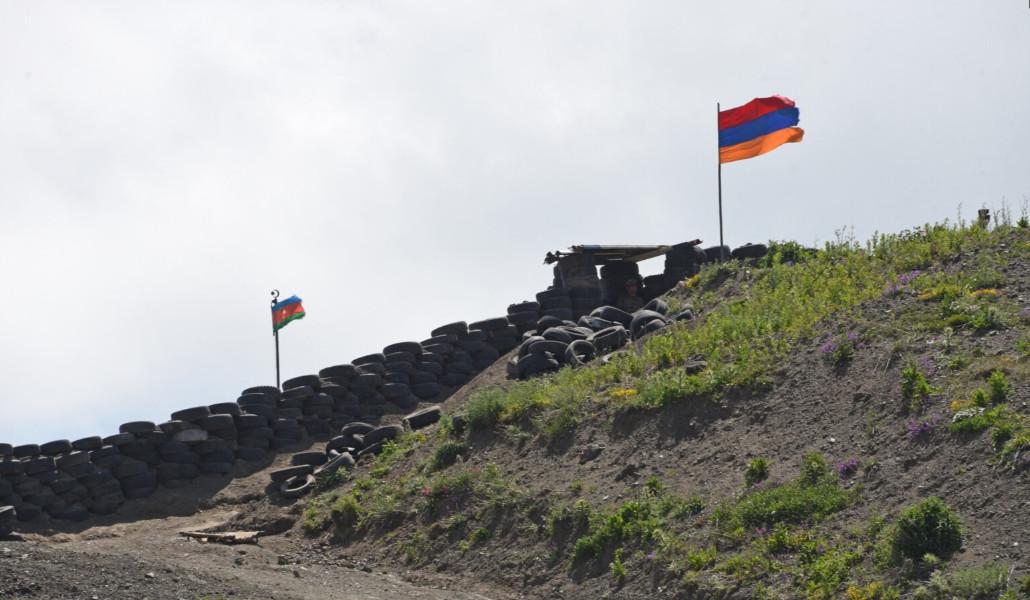'Azerbaijan wants to derail peace process': minefield maps become latest flashpoint
Armenia-Azerbaijan minefield maps
The Azerbaijani Foreign Ministry has called on the international community to hold Armenia accountable for what it described as “deliberate and large-scale mining.” A similar statement was made in the Milli Majlis. Officials in Baku reported that three people, including two children, were injured by a landmine explosion in Aghdam.
Political analyst Robert Ghevondyan believes Azerbaijan is trying to portray Armenia as the disruptive party in order to justify its refusal to sign a peace agreement that has already been agreed upon in all other respects.
“One of Azerbaijan’s main goals is to increase pressure on Armenia, including through the international community. That’s precisely why it claims that children were injured in the Aghdam explosion. But no children currently live in Aghdam. It’s just another fabrication by Baku. Moreover, there couldn’t have been mines in the city of Aghdam. Only former military positions could have been mined, and children couldn’t possibly have been there,” he told JAMnews.
He added that Azerbaijan’s preconditions for signing the agreement—such as amending Armenia’s constitution and dissolving the OSCE Minsk Group—are seen as illegitimate by the international community. This, he argues, is why Baku is resorting to alternative accusations.
For example, Azerbaijan has repeatedly claimed that Armenian forces are violating the ceasefire, though it has failed to provide evidence. This morning, Armenia’s Ministry of Defence once again denied disinformation about alleged ceasefire violations. Meanwhile, Azerbaijan has revived demands for detailed maps of mined territories.
At the same time, residents of Armenia’s Syunik region continue to report gunfire from the Azerbaijani side, particularly around the village of Khndzoresk. Armenian media and social media platforms have published photos of a residential house damaged in a recent attack.

In addition, Armenia’s Ministry of Defence reports gunfire from the Azerbaijani side along the border, describing it as “irregular and indiscriminate.”
- ‘Freeing Armenian prisoners is a priority for Trump administration’ – Jared Genser
- ‘Hatred of Armenians is the glue of Aliyev regime’: Yerevan reacts to Aliyev’s speech
- How to seize chance for peace? Thomas de Waal on Armenia-Azerbaijan agreement
- ‘Yerevan should propose that US become guarantor of peace treaty with Baku’ – opinion
Accusations from Baku
Azerbaijan continues to accuse Armenia of providing inaccurate minefield maps, claiming they are only 25 percent accurate. Azerbaijani Foreign Ministry spokesperson Aykhan Hajizada stated that the maps handed over by Armenia mark the location of around 400,000 mines:
“In reality, the number is closer to 1.5 million. Armenia’s approach to the mine threat represents yet another setback in efforts to build peace and trust in the region during the post-conflict period.”
The Azerbaijani parliament has called for “pressure” on Armenia to provide accurate minefield maps.
The Foreign Ministry of Azerbaijan also appealed to the international community:
“We urge the international community to recognise the urgency of demining efforts, to support Azerbaijan in its ongoing clearance operations, and to hold Armenia accountable for the deliberate and widespread mining that continues to endanger innocent lives and hinder post-conflict recovery.”
“No better or more accurate maps exist”: Armenian Foreign Ministry
Foreign Ministry spokesperson Ani Badalyan stated that Armenia had handed over 972 minefield maps to Azerbaijan “unilaterally and without preconditions.” According to her, the maps were provided between June and November 2021.
“Moreover, in line with principles of humanitarian cooperation, Armenia conducted surveys and submitted new minefield maps to Azerbaijan at the beginning of 2024.
Azerbaijan keeps questioning the accuracy of these maps, despite our repeated statements that no better or more accurate maps exist. Armenia remains ready—as before and now—to verify the accuracy of these maps with the involvement of international experts. It is also worth noting that the International Court has unequivocally rejected Azerbaijan’s request for provisional measures against Armenia over its mine-laying accusations,” she said.
Comment from political analyst Robert Ghevondyan
Baku seeks to dampen international optimism over a peace agreement
“Baku wants to lower the international community’s expectations of Azerbaijan as much as possible, while at the same time maintaining its trust. In other words, it wants to present the situation in such a way that any [failure to sign the agreement] is due to fears and concerns caused by Armenia’s alleged unconstructiveness.
All the information coming out of Azerbaijan is aimed at portraying Armenia as a disruptive actor. It’s designed to show the international community that there are unresolved issues—therefore, signing an agreement at this stage is simply not possible.
Of course, claims that Armenia is shelling Azerbaijani positions are not enough. Even Azerbaijani citizens don’t believe these statements. The international community sees, too, that Armenia is genuinely committed to peace and has no motivation for escalation.
That’s why other arguments are needed. By using them, Azerbaijan is trying to derail the peace process and dampen international optimism surrounding the agreement.
The issue of minefield maps is a perfect excuse for Azerbaijan to increase pressure on Armenia and portray it as a destructive state.”
Both of Azerbaijan’s preconditions are unconvincing
“In reality, both of Azerbaijan’s preconditions for signing the agreement with Armenia are problematic in terms of legitimacy. Amending the constitution is an internal matter for Armenia. And the claim that the current constitution contains territorial claims against Azerbaijan has been declared invalid by Armenia’s Constitutional Court. The international community understands this. Armenia’s position is acceptable to the global community.
As for the OSCE Minsk Group, which dealt with the Karabakh conflict, Armenia agrees to its dissolution. There is no real dispute on this issue.
In short, these two arguments were not enough to portray Armenia as the side unwilling to make peace. Other factors were needed. That’s why the initial focus was on alleged shootings, and when that proved insufficient, Azerbaijan turned to the issue of mined territories.”
International pressure on Armenia unlikely
“It appears that Baku is expecting international pressure to be exerted on Armenia. But I don’t believe such pressure will materialise.
Most likely, Baku is counting primarily on pressure from Turkey, especially given the recent thaw in Armenian-Turkish relations — including the opening of the Margara checkpoint for humanitarian aid Armenia sent to Syria.
I don’t think Turkey is unaware of what Baku is doing. Especially since Ankara stands to benefit from the signing of a peace agreement between Armenia and Azerbaijan.
Turkey was one of the first countries to welcome the news that Armenia and Azerbaijan had reached a compromise on the text of the agreement. It is unrealistic to think that, as a result of Baku’s manoeuvring, Turkey would significantly ramp up pressure on Armenia — let alone other countries.”
Azerbaijan unlikely to agree to verification of maps
“It is unlikely that Azerbaijan will agree to verify the accuracy of the maps with the involvement of international experts. Baku consistently avoids any international presence in the territory of Nagorno-Karabakh.
The international community would, of course, be ready to take part in such verification. And there’s no need to ask anyone for permission—it’s a paid service. There are many organisations that offer it. Armenia and Azerbaijan would simply need to jointly fund the work of an international body that would come and assess the accuracy of the maps. But it’s doubtful that Baku would agree to this.”
Prepared for provocation at any moment
“I believe that large-scale escalation is highly unlikely. Azerbaijan has no direct motivation for such a move. However, smaller local incidents are quite likely if:
- Azerbaijan concludes that the steps it has taken are not enough to delay the signing of the agreement with Armenia, or
- international pressure on Baku continues at the same intensity.
The more pressure Azerbaijan faces to begin the process of signing the agreed document, the more it feels the need to demonstrate instability along the border.
Armenia, therefore, must be prepared for provocations at any moment — whether in the form of shelling, airstrikes, or sniper fire.”
Minefield maps – Baku’s new “target”






















